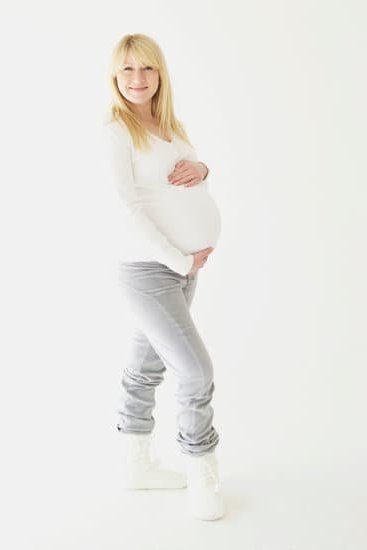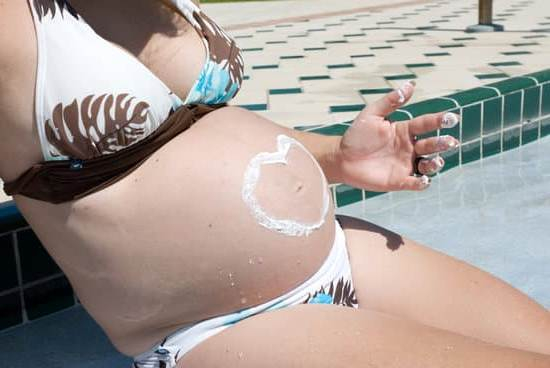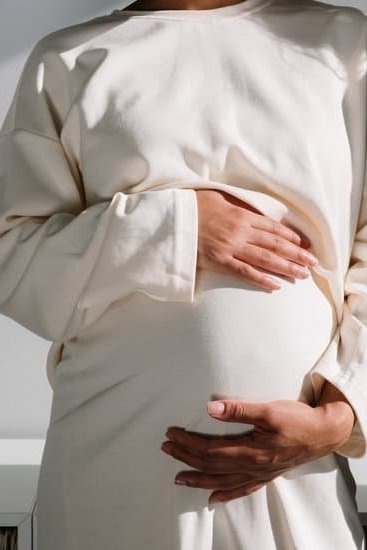The experience of feeling your baby move is undeniably exciting and signifies an important milestone in your pregnancy journey. In this article, we will explore the differences in feeling baby move between first and second pregnancies, when to expect it, factors that influence the timing, signs and sensations to watch out for, bonding with your baby, easing concerns about not feeling movement early on, and celebrating this special moment.
During your second pregnancy, the sensation of feeling your baby move can bring about a mix of emotions – excitement, joy, and a deeper sense of connection with your unborn child. While every pregnancy is unique and special in its own way, it’s natural to wonder how the experience of feeling baby move again will differ from your first pregnancy. Understanding these differences can help you navigate this phase with more confidence and enthusiasm.
In the following sections of this article, we will delve into specific aspects such as when to expect to feel your baby move in your second pregnancy, factors that can influence the timing of fetal movements, and the various signs and sensations you may experience.
Additionally, we will also discuss ways to bond with your baby through these movements and address common concerns that expectant mothers may have if they do not feel their baby move as early as they did in their first pregnancy.
Ultimately, our goal is to celebrate this special milestone with you while providing valuable insights to ease any worries along the way.
Understanding the Differences
When it comes to feeling the baby move, many mothers wonder how soon they will feel it in their second pregnancy compared to their first. The experience of feeling the baby move can vary from woman to woman and even from pregnancy to pregnancy. It is important to understand the differences between the two pregnancies in order to manage expectations and ease any worries about when this special milestone will occur.
In a second pregnancy, women may often feel the baby move earlier than they did in their first. This is due to the fact that women are more familiar with the sensation and are able to recognize it sooner.
Additionally, the uterine wall and abdominal muscles have been stretched from the first pregnancy, making it easier for movement to be felt. On average, second-time moms can expect to feel movement anywhere between 16-24 weeks, but some may notice it as early as 13 weeks.
The position of the placenta may also impact when a mother feels her baby move in her second pregnancy. If the placenta is situated at the front of the uterus (anterior placenta), it can act as a cushion and dampen fetal movements, causing a delay in feeling them.
However, if the placenta is located at the back of the uterus (posterior placenta), movements can be felt more readily. Ultimately, every pregnancy is unique and while some mothers may feel movement very early on in their second pregnancy, others may have to wait a little longer before experiencing those precious kicks and flutters.
| Difference | Impact |
|---|---|
| Experience | Variation from woman to woman and from each pregnancy |
| Position of Placenta | May affect how soon a mother feels her baby move during her second pregnancy |
When to Expect It
For many women, feeling the baby move is one of the most exciting parts of pregnancy. During the second pregnancy, you may be eager to feel those first flutters and kicks again, but it’s important to remember that every pregnancy is different. So, when can you expect to feel your baby move during your second pregnancy?
Here is a general timeline of when you may start feeling your baby move during your second pregnancy:
- Around 13-16 weeks: Some women may start feeling subtle movements around this time, especially if they are attuned to their body and the sensation of fetal movement.
- 16-22 weeks: This is the typical window when most women will begin to feel distinct movements from their baby.
- 22-28 weeks: By this stage, almost all pregnant women will have felt their baby move.
It’s important to keep in mind that these are just general guidelines and every woman’s experience can vary. Factors such as the position of the placenta, the location of the baby, and even a mother’s weight can impact how soon she feels her baby move during her second pregnancy. Always consult with your healthcare provider if you have any concerns about fetal movement or any other aspect of your pregnancy.
Remember that feeling your baby move for the second time can be a unique and special experience, so try not to compare too much with your first pregnancy. Enjoy each milestone as it comes and cherish this precious time with your growing little one.
Factors That Influence the Timing
Feeling your baby move for the first time during your second pregnancy can be an exciting and eagerly anticipated moment. However, the timing of when you will feel those first flutters and kicks can vary depending on a variety of factors.
Position of the Placenta
One factor that can influence when you feel your baby move during your second pregnancy is the position of the placenta. If the placenta is located at the front of the uterus, also known as an anterior placenta, it can act as a cushion, making it more difficult to feel the baby’s movements early on.
On the other hand, if the placenta is located at the back of the uterus or posteriorly, you may feel your baby’s movements sooner.
Experience With Pregnancy
Another factor to consider is your previous experience with pregnancy. If this is not your first pregnancy, it’s possible that you may recognize those subtle movements earlier than you did during your first pregnancy. Your familiarity with what to expect and how it feels can make it easier to identify baby movements sooner.
Position of Baby
The position of your baby within the uterus can also impact when you begin feeling movements. For example, if your baby is positioned towards the front, it may take longer for you to feel those movements compared to a baby positioned closer to your stomach muscles.
Understanding these various factors can help manage expectations and ease any concerns about when you will begin feeling your baby move during your second pregnancy. Each woman’s experience is unique, so it’s important to remember that there is no “one-size-fits-all” timeline for feeling fetal movement in subsequent pregnancies.
Signs and Sensations
When it comes to feeling your baby move in the 2nd pregnancy, the experience can be quite different from the first time around. Some women may feel their baby move earlier, while others might not notice it until later on. It’s important to understand that every pregnancy is unique, and this includes the sensations and signs of feeling your baby move.
One key difference between feeling your baby move in the 1st and 2nd pregnancy is that you may recognize those flutters and kicks more easily with subsequent pregnancies. This is because you are familiar with how it feels, and you may be more attuned to the movements from early on.
Additionally, there are some physical changes that occur in subsequent pregnancies that can impact how you feel the baby move. For example, if you have a lax abdomen due to previous pregnancies, you may feel movements sooner than expected.
The sensation of feeling your baby move during your 2nd pregnancy can vary from subtle flutters to full-on kicks and rolls. You may notice movements when you are relaxed or lying down, as this is when your baby is likely to be more active. Some women describe feeling butterfly-like movements or gentle taps, while others report more pronounced thumps and wiggles. Remember that every woman’s experience with feeling her baby move in the 2nd pregnancy is unique.
| Feeling Baby Move | Description |
|---|---|
| Subtle Flutters | Some women experience gentle fluttering sensations similar to butterflies in their stomach. |
| Pronounced Kicks | Other women may feel more defined kicks or rolls as their baby becomes more active. |
| Different Positions | You might feel movement when lying down or relaxing as this is when babies tend to be most active. |
Bonding With Baby
During the second pregnancy, feeling your baby move can be an incredibly special and emotional experience. As you bond with your little one before they even make their appearance, it’s important to understand the significance and impact of these movements. This bonding process through feeling your baby move is not only special for you as the mother but also for your partner and other family members eagerly anticipating the arrival of the new addition to the family.
The bond formed between a mother and her baby through feeling movements in the womb is a unique and unexplainable connection. It creates a sense of closeness and intimacy that begins long before birth. For many women, this connection helps them feel more in tune with their pregnancy and builds excitement for the baby’s arrival.
Benefits of Bonding With Baby Through Movement:
- Stronger emotional connection with your baby
- Reduced stress and anxiety during pregnancy
- Increased feelings of love and affection towards your unborn child
As for partners, being able to feel the baby move through touch on the belly can also strengthen their bond with both the mother and baby. It allows them to actively participate in the pregnancy journey, fostering a deeper connection within the family unit as they eagerly await this new chapter in their lives.
Ultimately, bonding with your baby through feeling movement during your second pregnancy is an irreplaceable experience that holds immense emotional value for all involved. Recognizing this unique opportunity to connect with your unborn child can bring immeasurable joy throughout this precious time.
Tips for Easing Any Concerns
During a second pregnancy, many expecting mothers may find themselves worrying about not feeling their baby move as early as they did during their first pregnancy. This concern is completely normal, and there are several factors that can influence when you feel your baby move again. It’s important to keep in mind that every pregnancy is different, and the timeline for feeling your baby move can vary from one pregnancy to the next.
One common factor that can impact when you feel your baby move in the second pregnancy is the position of the placenta. If the placenta is positioned at the front of the uterus, it can act as a cushion and make it more difficult to feel your baby’s movements.
This is known as an anterior placenta, and it’s a common occurrence in pregnancies. Additionally, if you have a higher body mass index (BMI) during your second pregnancy, it may take longer to feel your baby move due to the extra layers of fat and tissue.
If you’re concerned about not feeling your baby move as early in your second pregnancy, it’s important to communicate with your healthcare provider. They can provide reassurance and guidance based on your specific medical history and circumstances.
As always, trust your instincts and seek medical attention if you have any concerns about not feeling your baby move within the expected timeline. Remember that every pregnancy is unique, and what matters most is ensuring the health and well-being of both you and your baby.
Celebrating Milestones
In conclusion, feeling the baby move in the 2nd pregnancy is a special milestone that brings joy and excitement to expectant parents. The experience of feeling baby move for the second time is different for each woman, and it can be influenced by various factors. Understanding when to expect it and being aware of the signs and sensations can help ease any concerns and allow parents to bond with their little one.
For many women, feeling the baby move in their 2nd pregnancy can happen sooner than in their first pregnancy. This is because they are more familiar with the sensation and may recognize it earlier.
However, it’s important to remember that every pregnancy is unique, and some women may not feel movement until later on. Factors such as the position of the placenta, the mother’s weight, and the baby’s position can all play a role in when movement is felt.
As parents anticipate feeling their baby move for the second time, it’s important to celebrate this milestone and cherish the emotional connection that comes with it. Whether it’s butterfly flutters or noticeable kicks, each movement is a reminder of the precious life growing inside. The journey of pregnancy is full of wonders, and feeling baby move is one of those beautiful moments to be cherished.
Frequently Asked Questions
How Early Can You Feel Flutters With Your Second Pregnancy?
With a second pregnancy, you may start feeling flutters or quickening as early as 13-16 weeks. This is because you are more familiar with the sensation and can recognize it sooner than during the first pregnancy.
How Early Can You Feel Pregnant With Second Baby?
Feeling pregnant with a second baby can happen quite early, sometimes even before a missed period. This is because your body may react more quickly to the hormonal changes, leading to symptoms like breast tenderness, fatigue, and nausea.
Is It Possible to Feel a Baby Move at 8 Weeks 2nd Pregnancy?
Feeling a baby move at 8 weeks in a second pregnancy is not common. At this stage, the fetus is still very small and nestled deep within the pelvis. However, some women may mistake other bodily sensations for fetal movement at this early stage due to increased awareness of their body’s changes.

Welcome to my fertility blog. This is a space where I will be sharing my experiences as I navigate through the world of fertility treatments, as well as provide information and resources about fertility and pregnancy.





